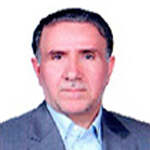Fuzzy Cognitive Map of Macro Determinants of Population Health in Iran
Health promotion is a crucial task for policymakers. Therefore, this study aims to identify the key factors that determine population health in Iran and illustrate the causal relationships between these factors.
The research was conducted using a mixed-method approach in three stages. First, macro social determinants of health were identified by analyzing available resources from 2000 to 2019. Screening of factors was carried out through the fuzzy Delphi method and a survey involving 15 experts. Finally, the causal relationships between the social determinants of health were depicted using a fuzzy cognitive map.
Initially, 96 health determinants were identified at the national and global levels. After the screening, 8 factors that had less significance in population health were excluded. In terms of causal relationships, the economic system emerged as the most important and influential factor, with a centrality degree of 21.06 and an out-degree of 10.91. Following that, governance and policy-making, as well as national policies, were ranked with centrality degrees of 20.25 and 20.19, respectively.
Irrespective of the causal relationships, the health system holds the utmost importance in population health. However, when considering the causal relationships, the economic system takes precedence as the most critical factor, while the health system does not rank among the top three factors. Therefore, the analysis of fuzzy cognitive maps assists policymakers in understanding priorities and the interconnectedness between sectors in developing and implementing health-oriented policies across all sectors, enabling the adoption of the most effective policies.
-
The impact of renewable energy and carbon emissions on health expenditures in Iran
Mohammadreza Arefian, Abbas Assari, Lotfali Agheli Lotfali Agheli, Ali Asgary
Quarterly Journal of Economic Modelling, Winter 2025 -
Investigating the Impact of Housing Characteristics on Fertility Preferences in Iranian Households
Seyyed Hamidreza Zakeri *, Abbas Arani Asari, Ehsan Farhadi
Journal of Economics and Modeling, -
An investigation of Health System Reforms in Upper-Middle-Income Countries in Response to COVID-19 Pandemic: A Systematic Review
Ali Mehrabi Bahar *, Amirhossein Takian, Mohammad Arab, Ali Akbar Haghdoost, , Ahad Bakhtiyari
Iranian Red Crescent Medical Journal, Dec 2024 -
Emerging issues of the digital economy and its tax challenges in Iran (Cryptocurrencies case study)
*, Mohammadmehdi Nasr Harandi, Sajedeh Salehnia
Journal of Economic Research and Policies, -
Identifying and analyzing the interactions of social determinants of health in Iran
*
Management Strategies in Health System, -
The New Model of Prioritizing Orphan Drugs: The Case Study for Hemophilia, SMA, CF and MS
Marita Mohammadshahi, Zahra Gharib-Naseri, Mohammadreza Mobinizadeh, Zeinab Fakoorfard, Farhad Hosseinzadeh Lotfi, Hamid Sharafi, Parisa Abooee, Ali Akbari Sari,
Shiraz Emedical Journal, Jan 2025 -
Modeling and Short-Term Prediction of National Electricity Consumption Using Recurrent Neural Network and TPE Optimization Algorithm
Mojtaba Zahaki Rahat*, Saghdel
Quarterly Energy Economics Review, -
Factors Affecting Poverty in Female-headed Households with an Emphasis on Health Indicators
Mahmoud Sharifpour, Saghdel *, Lotfali Agheli, Alimohammad Ahmadi
Quarterly Journal of Applied Economics Studiesin Iran,



